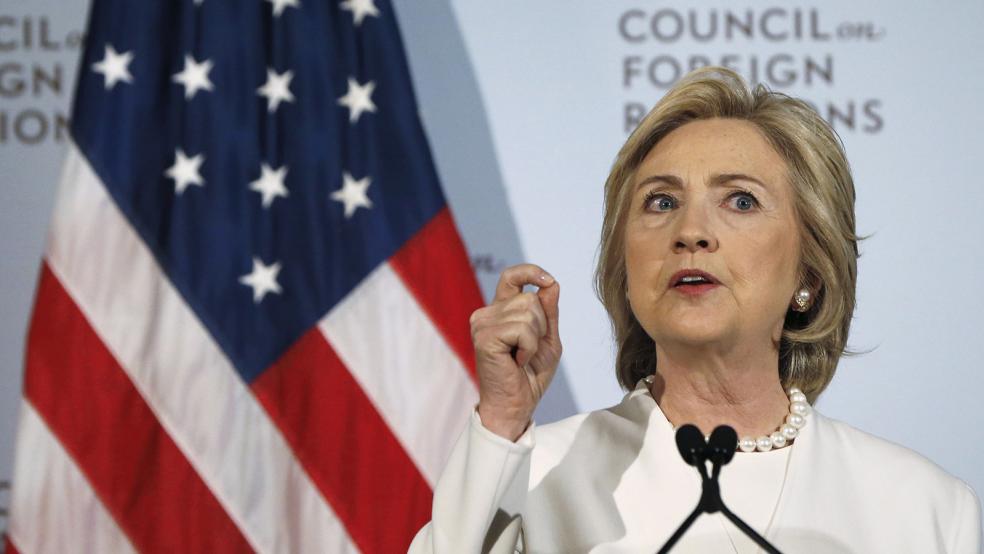Hillary Clinton’s plan for fighting ISIS walks a fine line between her hawkish Republican rivals and the administration she once served in.
In a speech Thursday, the former secretary of state said the U.S. and its allies should intensify the fight against the extremist group and called for the establishment and enforcement of a no-fly zone over Syria, a step President Obama has been loath to take.
Related: The Clintons’ Incredible $3 Billion Money Machine
In another policy split with her former boss, Clinton said the U.S. should revise the rules of engagement for the roughly 3,500 troops already in Iraq in order to give them “greater freedom of movement and flexibility, including embedding in local units and helping target airstrikes.”
But unlike former Florida Governor Jeb Bush, who unveiled his strategy for combating the group on Wednesday, Clinton ruled out sending U.S. troops back into the region to fight ISIS.
"That is just not the smart move to make here," she said.
In splitting the gap between the Obama and Bush doctrines, Clinton once again signaled that her administration would emphasize compromise.
Her speech before the Council on Foreign Relations in New York makes Clinton the third White House hopeful – in addition to Bush and Ohio Gov. John Kasich – to lay out their national security vision since the ISIS attacks in Paris last week. The carnage has shaken up the race for the White House, putting a fresh emphasis on defense and security issues.
Related: Why Hillary Clinton Should Keep Her Distance from Obama’s Policies
While Kasich’s plan went mostly unnoticed, Bush drew praise, and some condemnation, for his strategy, in large part because of the legacy left by his brother, President George W. Bush, who started the wars in Afghanistan and Iraq.
Then-New York senator Clinton voted to authorize the Iraq war. That vote provided a decisive factor in Barack Obama’s win over her in the 2008 Democratic presidential primary and has come back to haunt her again, with Sen. Bernie Sanders (I-VT) regularly invoking Clinton’s support for the war while on the campaign trail.
Observers wondered if she would present a more hawkish world view, distancing herself from Obama’s national security policies that have come under withering criticism in the wake of the Paris attacks, or hew closer the party’s liberal, more dovish base.
The nation’s former top diplomat did suggest that it’s past time for America’s allies to take on more of the anti-ISIS fight.
Related: From Bombers to Subs, Inside Bush’s Costly Plan to Expand the Military
“What we have done with airstrikes has made a difference but now it needs to make a greater difference and we need more of a coalition flying those missions with us,” she said.
“We have pieces in place but I think we have to deepen and better coordinate not only within our own country and Europe but more broadly.”
She especially singled out the Arabs and Turks as two groups that need to “step up.”
"This is their fight and they need to act like it," Clinton said.
The former first lady also weighed in on the heated debate over allowing Syrian refugees to enter the U.S.
"We cannot allow terrorists to intimidate us into abandoning our values and our humanitarian obligations," she said. "That is just not who we are. We are better than that.”
In a reminder of the tightrope Clinton must walk on foreign policy, Republican National Committee Chairman Reince Priebus released a statement after the speech calling her the “architect of the failed Obama foreign policy that has presided over a steep increase in radical Islamic terrorism and the rise of ISIS.”
“Rather than putting forward a new plan to defeat ISIS, Hillary Clinton offered soaring platitudes and largely doubled down on the existing Obama strategy,” Priebus said.





